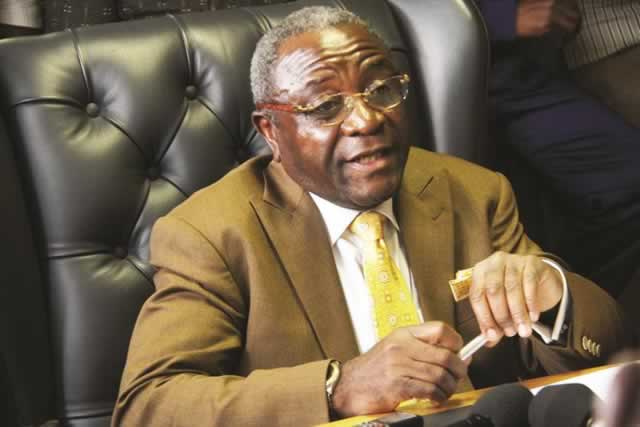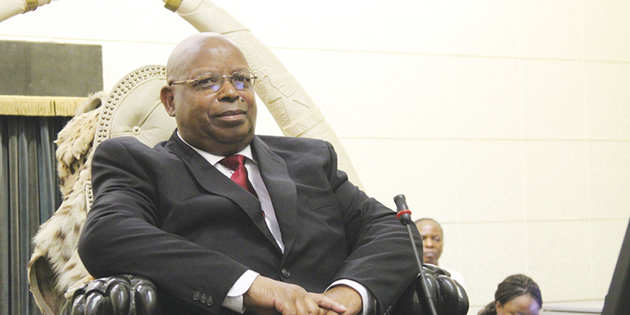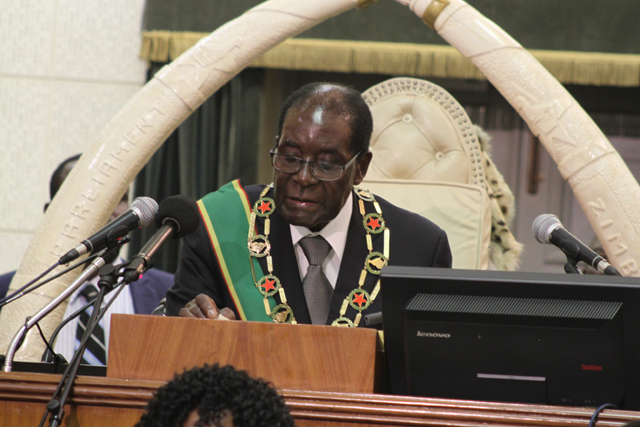A Year After Dube

Robson Sharuko Senior Sports Editor
THIS week marks a year since Cuthbert Dube was finally swept away from his post as ZIFA president after months of being pummelled by a tsunami provoked by rebellious councillors, as he threw in the towel just hours before his mandate to lead domestic football was revoked.
On a dramatic night on October 2, last year, Dube announced his resignation — just seven months into his second four-year-term as ZIFA boss, finally wilting under the relentless pressure that had been exerted by the councillors since they first staged their spectacular rebellion against his leadership on May 16.
10 months of Philip Chiyangwa
Dube responded to that initial attack on his leadership by suspending his then deputy, Omega Sibanda, and board member Bernard Gwarada with regional leaders Willard Manyengavana, Sweeney Mushonga, Martin Kweza, Musa Mandaza, Tumeliso Ndlovu, Brighton Malandule, Piraishe Mabhena, Davison Muchema, Felton Kamambo, Patrick Hill, Dennis Tshuma and Joseph Musariri also being booted out.
But that iron-fisted response failed to douse the flames and the resilient councillors, after another botched attempt to kick out their leader in July collapsed on a technicality, regrouped and called for an extraordinary meeting on October 3, last year.
With FIFA and CAF officials in town for that watershed indaba, Dube, who boasted he was 99.99 percent confident he would survive the boardroom coup, stunned the domestic football family with a dramatic announcement — delivered on the eve of the meeting — that he was stepping down as ZIFA boss.
He, however, said he would remain in charge on a caretaker basis, to ensure there was no vacuum of leadership until December 5, last year, but the following day, 51 councillors rejected that plan, pregnant with a number of fault-lines, and overwhelmingly voted to push him out together with his entire ZIFA board.
And, as he walked away from a mess which his critics, including the councillors, blamed on his doorstep after a five-year reign in which domestic football staggered from one disaster to another, culminating in the Warriors’ expulsion from the 2018 World Cup qualifiers without kicking a ball, Dube demanded to be paid about $1 million he claimed he had loaned the game.
That matter is still pending.
But three failed Nations Cup campaigns by the Warriors under his watch, including one tournament in South Africa in 2013 when they just needed to beat two teams to qualify for the finals, will always be seized upon by his critics as a reflection of his administrative shortcomings.
That Dube was not there to support the Warriors in 20 World Cup/Nations Cup qualifiers which the Warriors played, during his five years in charge of domestic football, with 10 of those matches coming at home and the other 10 being played on foreign lands, appeared to convince his critics that he had very little interest in the game.
He only watched one game for the Warriors at home, when they hosted Brazil in a high-profile international friendly at the National Sports Stadium, just three months after he had been elected to serve his first four-year term as the ZIFA boss.
And, when the Warriors were expelled from the 2018 World Cup qualifiers for the first time in their history after the ZIFA board failed to settle the $60 000 owed to Valinhos, over a period of five years, despite repeated warnings from FIFA that such conduct carried dire consequences, the Councillors finally lost patience with their leadership and felt the red line had been crossed.
In December last year, after a period in which former ZIFA chief executive Jonathan Mashingaidze had acted as the man in charge of domestic football, the Councillors elected Harare property mogul Philip Chiyangwa as their leader, while bringing in some new fresh faces on the board like Philemon Machana.
Omega Sibanda bounced back to resume his duties as the ZIFA vice-president.
Five Years of Cuthbert Dube
Now, a year after Dube was toppled by the Councillors, has Zimbabwe football progressed or it is still strapped in the same quagmire of chaos that characterised the Harare business executive’s time in charge of the national game?
The huge debt remains a barrier to progress but, rather than balloon as was the case when Dube was in charge, when fiscal discipline was taboo — with a photographer even claiming he ran an outrageous bill of more than $30 000 for just taking pictures at ZIFA’s functions — it has been contained.
“I’m looking at ways of dissolving this debt but I can’t just make it public right now because we have many people who are ready to throw spanners in everything that we do so that there is no progress at all,” Chiyangwa told The Herald.
Unlike Dube, who fashioned himself as a leader only visible in his boardroom, Chiyangwa has made his presence felt when it comes to throwing himself into the trenches whenever the Warriors are in action and he has been rewarded by positive results from the field, which include the Warriors ending their 10-year wait for an appearance at the Nations Cup finals.
Others will rightly point out that it was Dube who laid the foundation, with the Warriors picking four out of a possible six points in their first two 2017 AFCON qualifiers.
But, given the turmoil that enveloped their camp ahead of the first game against Malawi, when the players refused to board their plane in protest over unpaid dues by the leadership, there was no guarantee this story would have had a happy ending if the leadership of the game had not changed.
And, crucially, they could have been kicked out of the 2022 World Cup qualifiers, without kicking a ball, because — if Dube and his crew had failed, in five years, to settle Valinhos’ $60 000 debt, chances of them dissolving the $180 000 owed to Belgian coach Tom Saintfiet, whom they hired to only coach for a day but still run this huge bill, were negligible.
In contrast, Chiyangwa needed just a month to find a partner, Wicknell Chivayo, who paid the $180 000 needed to settle that debt and ensure the Warriors would have a crack at the 2022 World Cup finals.
The Mighty Warriors, too, appeared to wait for Dube to be removed from his post for them to write one of football’s finest romantic tales when they knocked out Cameroon, just weeks after the Harare businessman had been toppled, to become the first Zimbabwe national football team to qualify for the Olympic Games.
Then this year, they ended a dozen years of watching from the sidelines as they qualified for the African Women Championships having suffered a 0-6 thrashing in the qualifiers for the 2012 edition and being knocked out by Zambia in the qualifiers for the 2014 tournament.













Comments